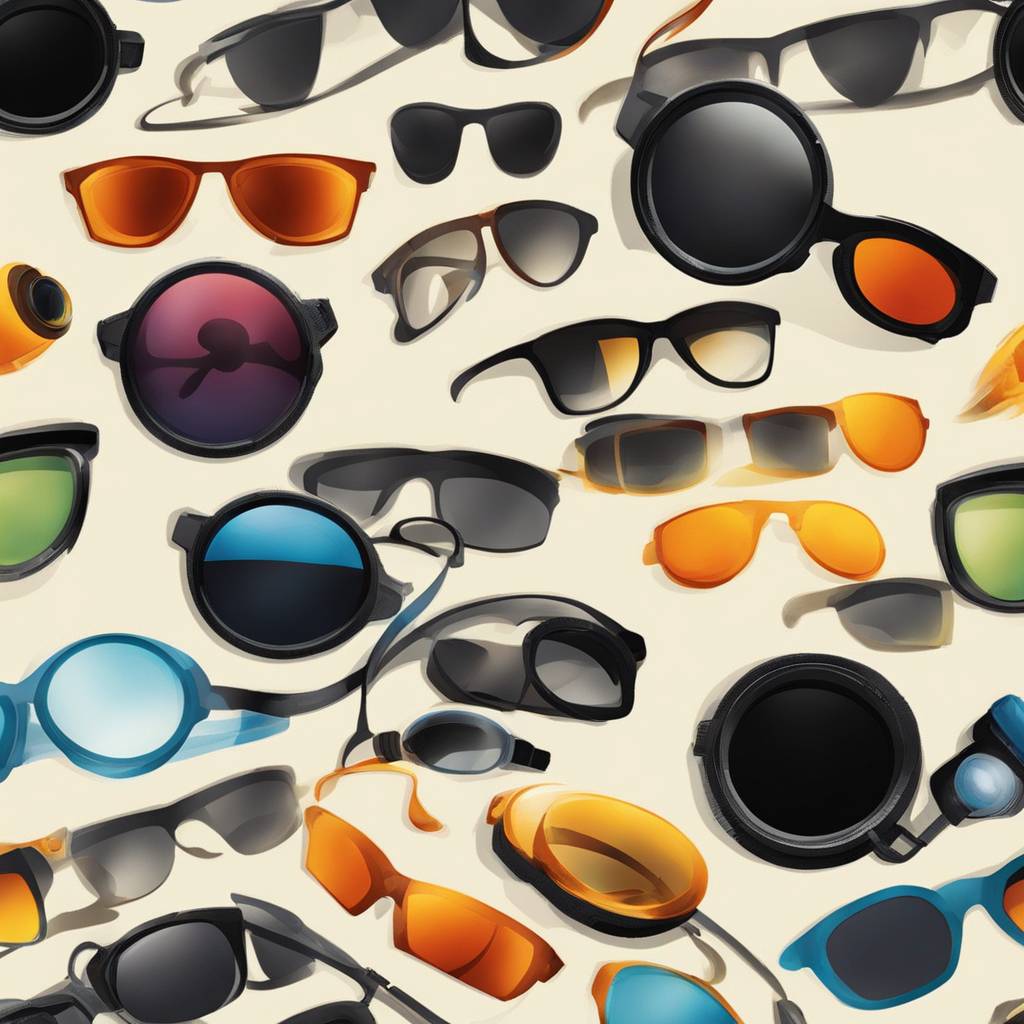Protecting your vision is crucial when witnessing a total solar eclipse, as the sun can cause serious damage to your eyes if not viewed safely. A total solar eclipse happens when the moon blocks the sun’s face, resulting in darkness. Special protective glasses, such as eclipse glasses, are essential for viewing the eclipse, as failing to wear them can result in solar retinopathy, a form of retinal damage that can be compared to a sunburn on the eye. The sun will be partially eclipsed during the event, so proper eye protection is necessary to prevent the entry of dangerous ultraviolet radiation and damage to the macular tissue of the retina.
Proper eclipse glasses are essential for viewing the solar eclipse safely. Normal sunglasses are not sufficient, as they are not dark enough to protect your eyes. Look for glasses that have been approved by the American Astronomical Society and meet the ISO 12312-2 standard to ensure they are safe for viewing the eclipse. Be cautious of counterfeit glasses or those that do not meet safety standards, as they can cause harm to your eyes. Some brick-and-mortar stores sell approved eclipse glasses, so it is advisable to purchase from these locations to guarantee their safety. It is recommended to test your glasses before the event by wearing them around other sources of light, such as street lights, to ensure they are legitimate and do not allow any unwarranted light to pass through.
For those in the path of totality, there is a brief moment when it is safe to view the eclipse without glasses, but it is crucial to wear them during all other phases of the event. Solar retinopathy, which is damage to the retina, can occur if eyes are exposed to the sun without protection. Symptoms of solar retinopathy include blurry vision, blind spots, and distorted color vision, which may appear within six to 12 hours after viewing the sun. Recovery from solar retinopathy can take several months, and vision may not fully return to normal. There is no specific amount of time that is safe to look at the sun before risking retinal damage, and even a few seconds can cause permanent harm.
Children are particularly vulnerable to the risks of viewing the eclipse without proper protection, as they may not understand the dangers associated with looking at the sun. It is important for parents to closely monitor their children while viewing the event and ensure they have the necessary protective glasses. Adults and children alike should take precautions to avoid eye damage during the solar eclipse, as the delicate parts of the eye are susceptible to harm from direct sun exposure. Regardless of age or susceptibility to sunburn, everyone should adhere to safety guidelines and wear approved eclipse glasses to prevent any potential damage to the eyes.
In summary, witnessing a total solar eclipse can be an awe-inspiring experience, but it is essential to protect your vision by using proper eye protection, such as eclipse glasses. Failing to wear these glasses can result in serious eye damage, including solar retinopathy, which can cause long-term harm to the retina. Approved eclipse glasses that meet safety standards are necessary for viewing the eclipse safely, and it is advisable to test them beforehand to ensure they do not allow any harmful light to pass through. Children are particularly vulnerable to the risks of viewing the eclipse without protection, so parents should closely monitor their children and ensure they have the necessary protective gear to prevent any potential eye damage.


